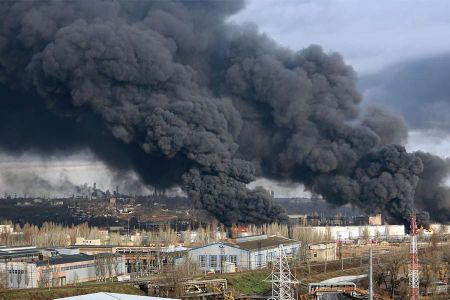By Simon Pirani
Even in the midst of war, there is a struggle for Ukraine’s energy future.
It’s one that international allies of Ukraine’s social movements need to pay attention to, because states like the US and UK, and international organisations like the European Union, will be influential in how that tussle turns out.
In almost every country in the world there is a battle for influence between partisans of renewable, decentralised energy production, and those of legacy nuclear or carbon-intensive methods, who often have deeper pockets and stronger political connections.
But in Ukraine, that struggle is intensified by the unprecedented catastrophe inflicted on its energy sector by the Russian military, and the resultant urgency to invest.
“No European power system has ever suffered, endured and withstood such large-scale destruction, including during the first and second world wars”, a report by the Energy Charter Secretariat, an inter-governmental body, stated last month.
In May this year, more than half of Ukraine’s pre-invasion electricity generation capacity (27 gigawatts or GW), was occupied or damaged. That was before the disastrous destruction of the Kakhovka dam on 6 June, likely from within. Fears of sabotage at the Zaporizhya nuclear plant, Ukraine and Europe’s largest, remain.
Read the rest of this entry »



 Posted by peoplenature123
Posted by peoplenature123 

